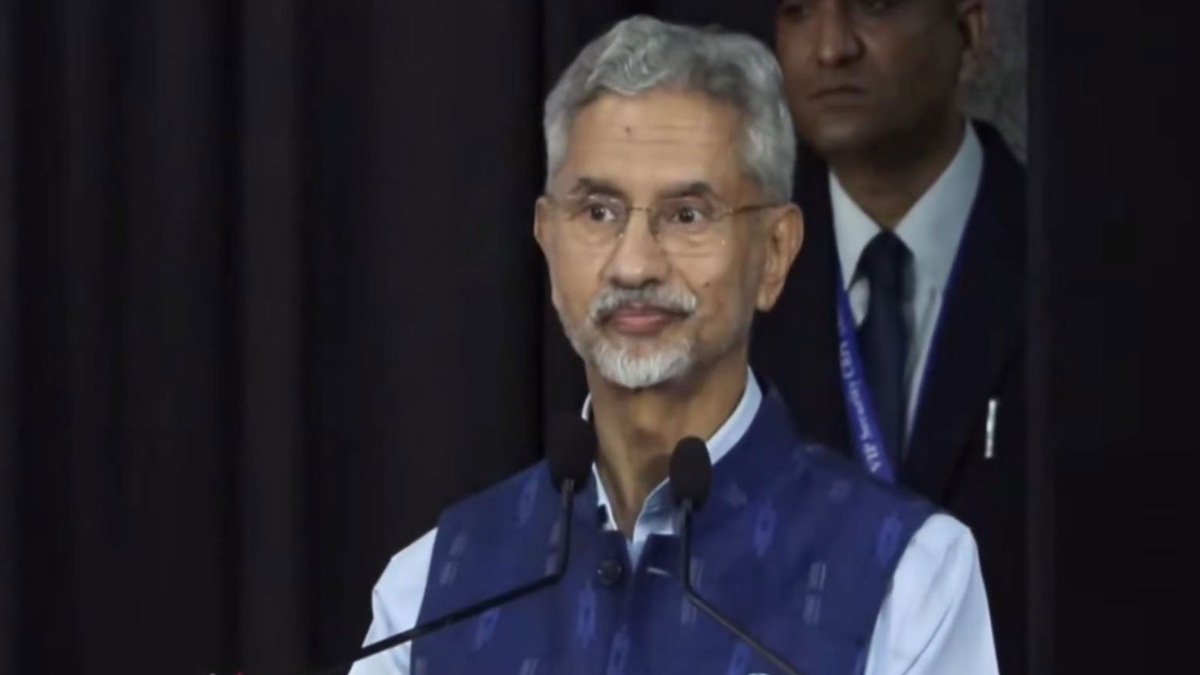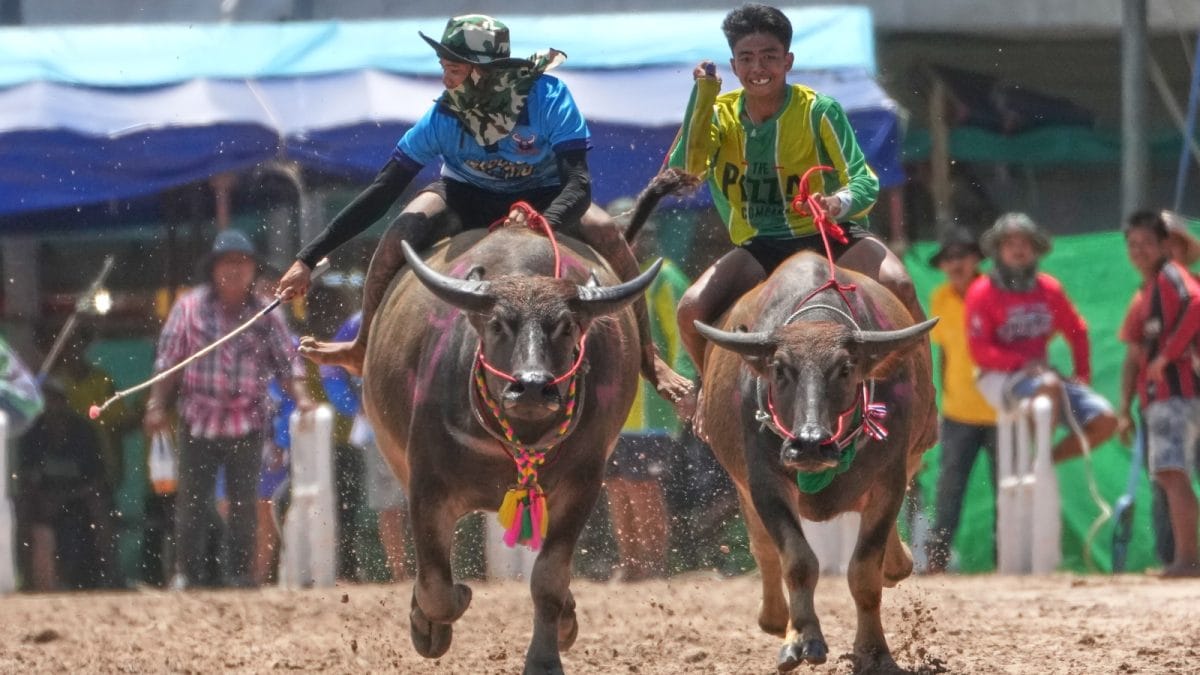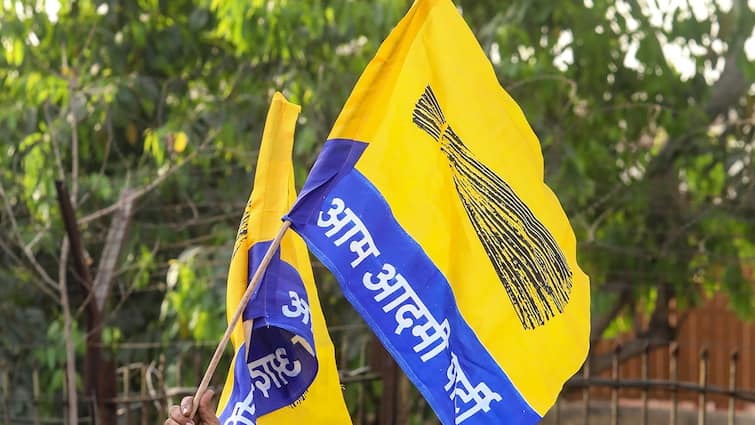External Affairs Minister S Jaishankar on Monday said that the world is undergoing profound strategic shifts across multiple domains that demand a calculated and clear-eyed response from India.
#WATCH | Speaking at Aravalli Summit 2025, External Affairs Minister Dr S Jaishankar says,”…Consider the global landscape now and let us reflect on the intensity of the transformation and their implications. A third of global manufacturing has moved to a single geography, with… pic.twitter.com/dn3VwtdKr2
— ANI (@ANI) October 6, 2025
Addressing the JNU Aravalli Summit in Delhi, Jaishankar said the world today is marked by deep changes in economic, technological, and geopolitical domains, changes occurring faster than ever before.
“Consider the global landscape now and let us reflect on the intensity of the transformation and their implications,” he said, pointing to how a third of global manufacturing has moved to one geography, disrupting supply chains worldwide.
He noted growing anti-globalisation sentiments, tariff volatility, and fundamental changes in the global energy equation, with the US emerging as a major fossil fuel exporter and China as a leader in renewables.
Jaishankar also emphasised the emergence of competing models around artificial intelligence and data, with Big Tech becoming a power centre in its own right.
“New routes of connectivity are emerging, some of them with a strategic purpose,” he said, adding that issues such as labour mobility, sanctions, crypto, and the scramble for critical minerals are redefining the global financial and economic order.
He warned that these shifts are not just economic or technological, but carry serious geopolitical consequences.
“The quality of weaponry and the nature of war itself has been transformed, making it more stand-off, more impactful and definitely more risk-prone,” he said.
On the broader strategic impact, Jaishankar said the erosion of sovereignty through technological penetration, the breakdown of global norms, and the weaponisation of various tools of statecraft have made the international environment more fragmented and competitive.
“Global rules and regimes are being revisited and at times, even discarded. Cost is no longer the defining criteria for economic transactions; ownership and security are equally so,” he said, adding that supply chains have become more vulnerable and dependent on key markets, increasing end-to-end risk.
Jaishankar observed that alliances and global understandings are also being re-evaluated, as countries shift from a belief in balance of power to a pursuit of margins of power.
“Cumulatively, the world is witnessing more competition and less compacts. The needle has shifted towards an intersection of interests and away from the promise of cooperation,” he added.
However, Jaishankar called for India to continue rising despite this unpredictability.
“While the majority are struggling to cope or busy defending their interests, India has to strategise and India has to continue rising amidst such volatility,” he added.
Jaishankar said India must navigate a multi-polar world while preparing to become a pole in its own right.
#WATCH | Speaking at Aravalli Summit 2025, External Affairs Minister Dr S Jaishankar says, ” India must operate in a multi-polar environment while itself preparing to emerge as a pole. That is why multi-alignment serves it well right now, and the goal of becoming a leading power… pic.twitter.com/gYqirgjFDf
— ANI (@ANI) October 6, 2025
“This is why multi-alignment serves our interests well today, and why aspiring to be a leading power is a natural goal for the future,” he added.
Addressing regional dynamics, Jaishankar highlighted the challenges posed by neighbouring countries and underscored the strategic importance of ‘de-hyphenation’ in global diplomacy.”
“We have several neighbours — some more cooperative than others. Hyphenation often occurs with the more difficult ones. De-hyphenation, for us, means ensuring that third countries make decisions about India based primarily on our merits and relevance — not in relation to others. In the competitive arena of global politics, some will always seek to exploit imbalances. The best way to achieve de-hyphenation is to surpass competitors in power and capability,” he added.
On the primacy of national interest, he said, “Our national interest comes above all, and that should be the final test in foreign policy making…”
Speaking on regional cooperation, he added, ” We do try to accommodate neighbours…We can accommodate them to the extent our national interest allows…”
Reinforcing India’s commitment to strategic autonomy, Jaishankar said, “Imagine, if today, you were not adopting strategic autonomy. Please tell me which country you would like to join up with and put our future in their hands. I can’t think of anybody…To me, my interest is best secured by maximising my opportunities and maintaining my freedom of choice…”
The inaugural Aravalli Summit, held at Jawaharlal Nehru University (JNU), commemorates the 70th anniversary of the university’s School of International Studies (SIS).
The two-day international conference, titled ‘India and the World Order: Preparing for 2047,’ is taking place on October 6–7 in New Delhi.
Organised in collaboration with the Ministry of External Affairs and the Chintan Research Foundation, the summit brings together scholars, diplomats, and policymakers to examine India’s evolving role on the global stage as it moves toward the centenary of its independence.
With inputs from agencies
End of Article

)

